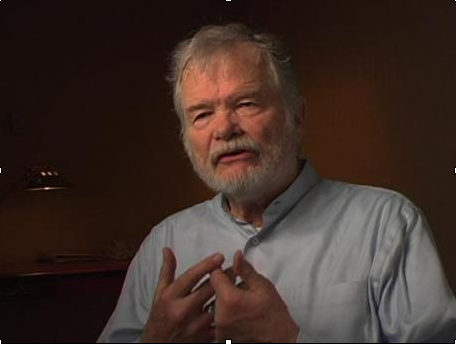 We were honored to have Marsden Wagner as an Orgasmic Birth expert and thought we’d share with you an excerpt from his transcript, mostly unpublished until now.
We were honored to have Marsden Wagner as an Orgasmic Birth expert and thought we’d share with you an excerpt from his transcript, mostly unpublished until now.
Marsden began his career in public health as a neonatologist and epidemiologist, firstly in California then Denmark. He retired from a distinguished career as head of Maternal and Child Health for the European Office of the World Health Organisation (WHO), he then became a consultant for WHO in the emerging countries of central and eastern Europe. He chaired three consensus conferences convened by WHO on appropriate technology around the time of birth and was a sought after international speaker for his forthright support of midwifery and midwives. He authored Born in the USA, Creating Your Birth Plan, and Pursuing the Birth Machine.
I had the great privilege of knowing Marsden Wagner as we both came together as speakers at Midwifery Today conferences and other conference around the world. His gentle, yet powerful presence always captivated me and all who were in the room. When I had the dream of making a documentary, I hoped Marsden would be a part of it. Knowing it was called Orgasmic Birth, he immediately said YES! His understanding of birth and sexuality lead him to be not only an expert in the film but to join me at film festivals, screening and to share some special private screening with the physicians and nurses in the film to honor that all providers are doing the best care with the information they have been taught, but he was able to help them to see there is more to understand to keep birth safe then all the technology and machines they have come to rely on. His gentle way of story telling, providing the research and honoring them all, brought many tears and in the coming months and years many changes as he touched us all so deeply to see beyond the fishtank we are in. One of his article I love to share with caregivers Fish Can’t see Water: The Need to Humanize Birth is one of the many articles and writings that allows his voice and vision to continue to touch and inspire us.
We are honored to share more of his interview for Orgasmic Birth with you….
“If anybody were to come in the… while making love, we would immediately get turned off. Couldn’t continue making love. And certainly we would never have an orgasm, because it is a very private, tender, personal, intimate time. And that is exactly what childbirth is. It is equally sexual, equally intimate, equally private. And so if you have a situation where people are banging in the door, …drop by, …how many strangers come into a woman’s room in the hospital during the course of a normal childbirth. …. Total strangers. This is certainly going to interfere with the normal birth. Because a normal birth requires the woman to release hormones which make the uterus contract and the things happen that must happen. And those hormones are the opposite of the adrenaline hormone which comes if you’re frightened or insecure or worried or any of that. It’s got to be like it is when you’re making love with someone. It’s got to be safe and secure and uninterrupted. And that is how you have an orgasmic birth. Because birth is sexual. Our country historically, culturally has a great deal of difficulty with human sexuality. And I have lived for many, many years in Europe where there’s a very, very different culture of human sexuality. And for example, they don’t have a serious problem with unwanted teenage pregnancy. They don’t. And the reason they don’t is because the children have been learning about sexuality from kindergarten on, and they understand and they know how to have sex without getting pregnant, et cetera, et cetera. But we have a great deal of difficulty with sexuality, and it’s embedded in our religion, in our culture, in our history. And that strongly influences our births. I know a midwife who does out of hospital births. And if for some reason she needs to transfer the woman into the hospital, she has a little bag, and in the little bag she has something very, very important – it costs two dollars. It’s a doorstopper. A doorstopper. And when she comes to the hospital, the woman gets in her room, and she puts the doorstopper under the door. And BANG somebody tries to come into the room, and “What!” And so the woman, the midwife says, “Oh, who’s there please.” “And it’s …and Dr. So-and-so.” And the midwife turns to the laboring woman and says, “Would you like Dr. So-and-so to come in or not?” So the woman is in control. She controls the environment, she controls the privacy. It has a huge effect. And she can continue to labor, because the whole, her hormones that are controlling her labor are also the sexual hormones. They’re the same set of hormones. And in fact the hormone that controls labor is the same hormone that will make an orgasm when you’re making love. So it’s physiologically, it’s absolutely in the same box. And that is why we must honor childbirth and understand all of this and make it an environment where the woman is in control and where the woman can be as private as possible, and where it can be honored as an intimate act.
Privacy is not just a nice extra, a frill that’s nice to have if you can have it in childbirth, in the hospital. And ninety percent of births in our country is in the hospital. So I’m really talking about ….. There is very good scientific evidence that a woman who has that privacy, who has someone there with her that she knows, such as a partner, a …, a mother, and that she has continuous presence of someone that she knows and cares about, will have far less complications. The labor will be shorter, the labor will be with less complications, there will be less pain. Less pain! And will go quicker, and she has a much higher chance of having a perfectly normal birth. So this business of respecting privacy and intimacy is not a nice extra, it is fundamental. Every animal in the animal kingdom goes off and hides when they give birth. And what do we do? (haha) We put her in a large institution with thousands of people running around. It’s crazy. And that doesn’t mean that there is something terrible about hospital births. It means that we have to learn to respect and deal with all of this in the hospital.”










Leave a Reply